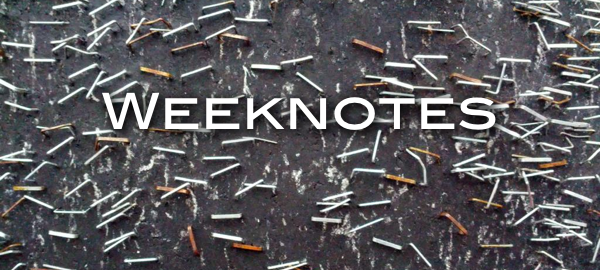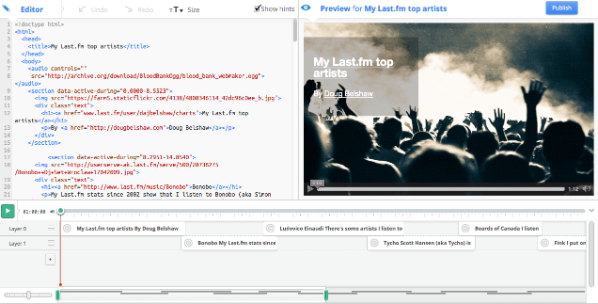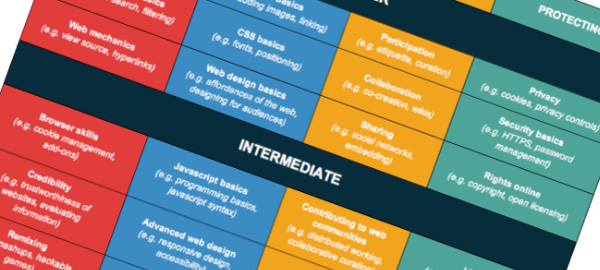Weeknote 03/2013
Here’s what I’ve been up to this week:
- Talking to Audrey Watters about web literacies. She’s a very smart person and I was impressed by what she had to say. I tried to capture most of what she said in this blog post.
- As my colleagues are such a talented and productive bunch, an important part of my working day is spent in co-ordination. When you’re not co-located it’s important that you get your thinking out there, which is exactly what Brett Gaylor’s done with his post on New Webmaker Prototypes. Exciting stuff! My response is here.
- I continue to contribute to both the Mozilla Webmaker list and the Open Badges Google Group. I’m looking forward to the latter splitting into two equally-weighted technical/learning groups!
- This week I’ve been invited to over 10 events (including Estonia twice!), which is a little insane. I said no to pretty much all of them, as I’m trying to travel less (and be more strategic when I do travel) in 2013.
- I’m trying to comment on more blog posts, especially when people are sharing the awesome work they’re doing around badges. Most notably, I commented on posts by Chris Sharples, Zoe Ross, Robert Weeks, and Grainne Hamilton. You should go and read them (the posts, not necessarily my comments!)
- Interestingly, the post by Robert Weeks was stimulated by a virtual presentation to the Bristol ‘weelearning’ group on Wednesday. Formerly a badge skeptic, Robert is now a badge enthusiast. Job done. 🙂
- My work around web literacies is going to end up as a ‘learning standard’. I’ve been discussing this with Erin and Carla. More on that soon.
- I spent Thursday in Leicester in the company of Josie Fraser, Lucy Atkins, Richard Hall and David White. I was advising on a new digital literacies framework for teachers in Leicester which should, hopefully, lead to badge-infused CPD. That was a bit of an epic journey: 4.5 hours each way in a day. Except the train was delayed on the way after a suicide on the line. 🙁
- I’ve done lots of reading this week, including the excellent book A Small Matter of Programming, a new DML Connected Learning report, the Peeragogy Handbook, and a new version of the IDEO Design Thinking for Educators resource.
- The ILTA invited me to write up my keynote last year into a journal article. I’m about half-way there, I reckon, and should finish it on Monday. It will have the title Zen and the Art of Digital Literacies.
- Thinking about the way that I and most of the people I know live in the future.
- When I wasn’t doing the above I was clearing the drive of snow, spending time at the gym (no running this week!), and sledging, snowman-making, and generally spending time with my family before…
Next week I’ll be escaping the snowy hinterland of Northumberland and heading to sunny California to meet my colleagues. We’ll be participating in a DML conversation around, you guessed it, Open Badges. On that note, I’m delighted to have been asked to do more work around learning and assessment related to badges – so look out for more posts of that nature in the near future!
Image uploaded originally by Cory Doctorow on Twitter




